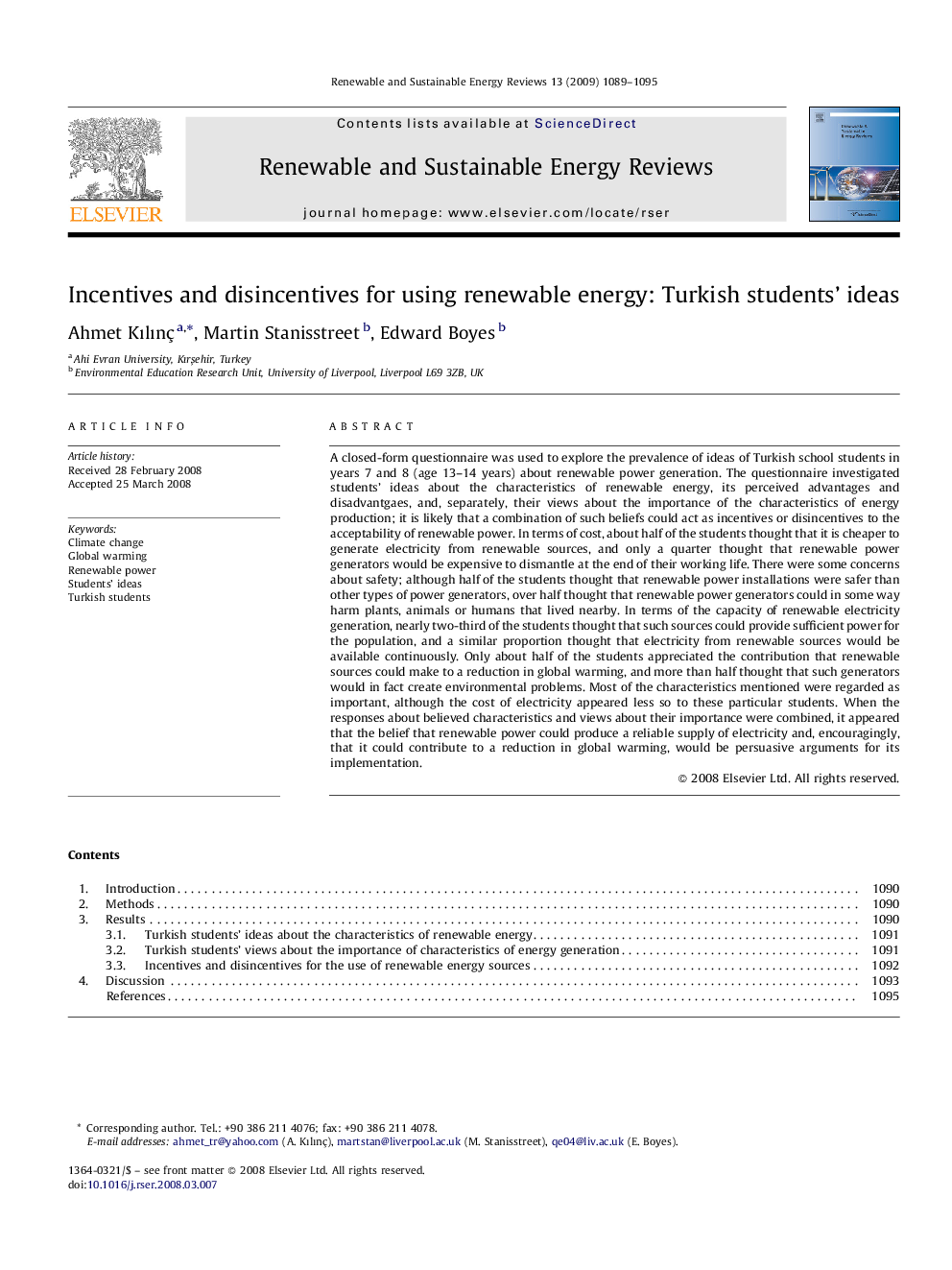| Article ID | Journal | Published Year | Pages | File Type |
|---|---|---|---|---|
| 1752172 | Renewable and Sustainable Energy Reviews | 2009 | 7 Pages |
A closed-form questionnaire was used to explore the prevalence of ideas of Turkish school students in years 7 and 8 (age 13–14 years) about renewable power generation. The questionnaire investigated students’ ideas about the characteristics of renewable energy, its perceived advantages and disadvantgaes, and, separately, their views about the importance of the characteristics of energy production; it is likely that a combination of such beliefs could act as incentives or disincentives to the acceptability of renewable power. In terms of cost, about half of the students thought that it is cheaper to generate electricity from renewable sources, and only a quarter thought that renewable power generators would be expensive to dismantle at the end of their working life. There were some concerns about safety; although half of the students thought that renewable power installations were safer than other types of power generators, over half thought that renewable power generators could in some way harm plants, animals or humans that lived nearby. In terms of the capacity of renewable electricity generation, nearly two-third of the students thought that such sources could provide sufficient power for the population, and a similar proportion thought that electricity from renewable sources would be available continuously. Only about half of the students appreciated the contribution that renewable sources could make to a reduction in global warming, and more than half thought that such generators would in fact create environmental problems. Most of the characteristics mentioned were regarded as important, although the cost of electricity appeared less so to these particular students. When the responses about believed characteristics and views about their importance were combined, it appeared that the belief that renewable power could produce a reliable supply of electricity and, encouragingly, that it could contribute to a reduction in global warming, would be persuasive arguments for its implementation.
